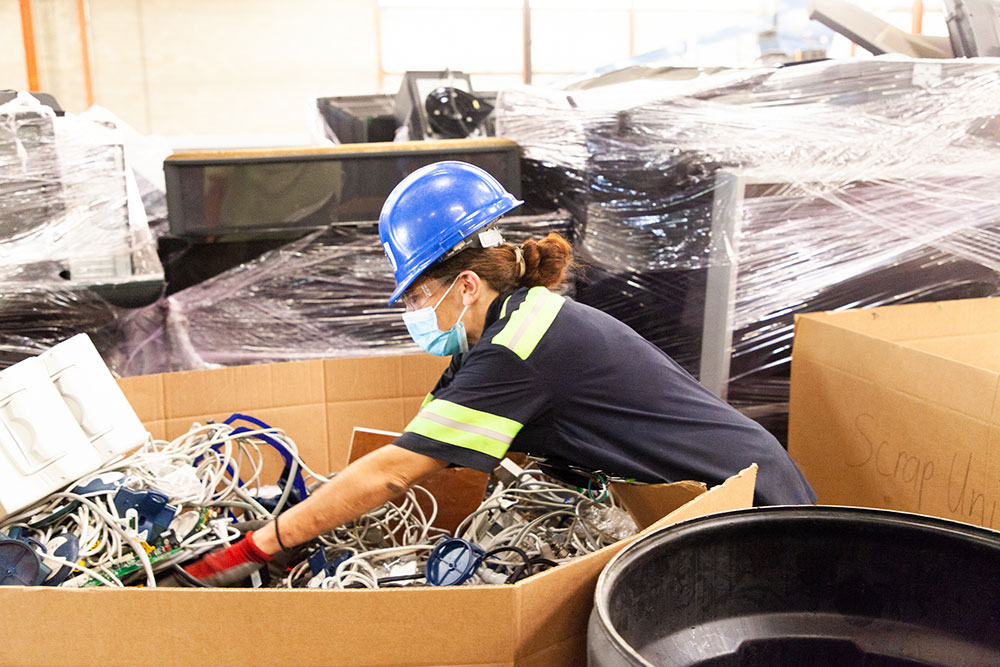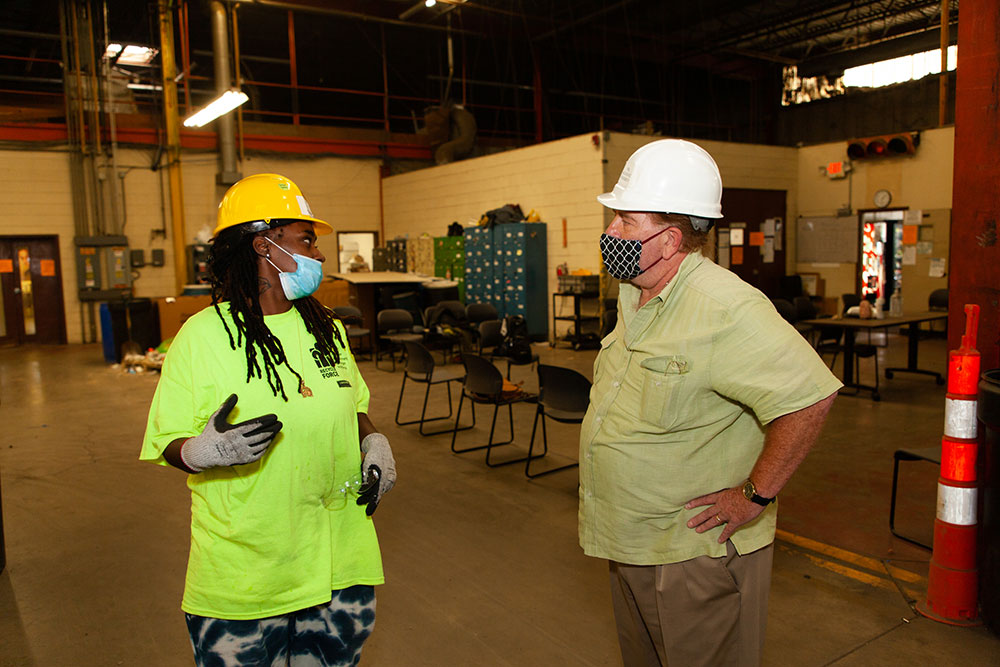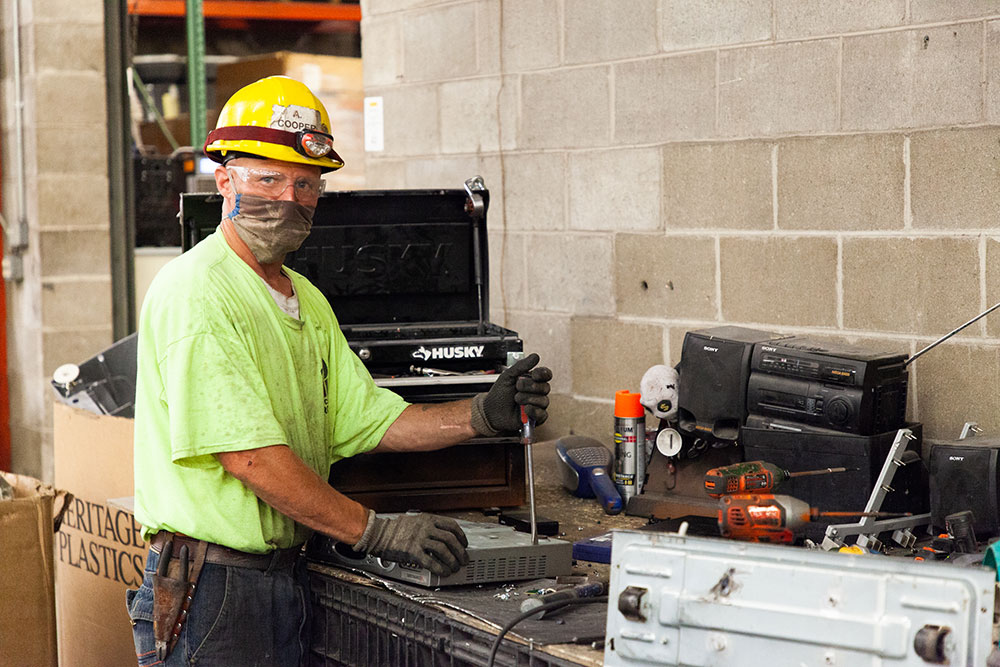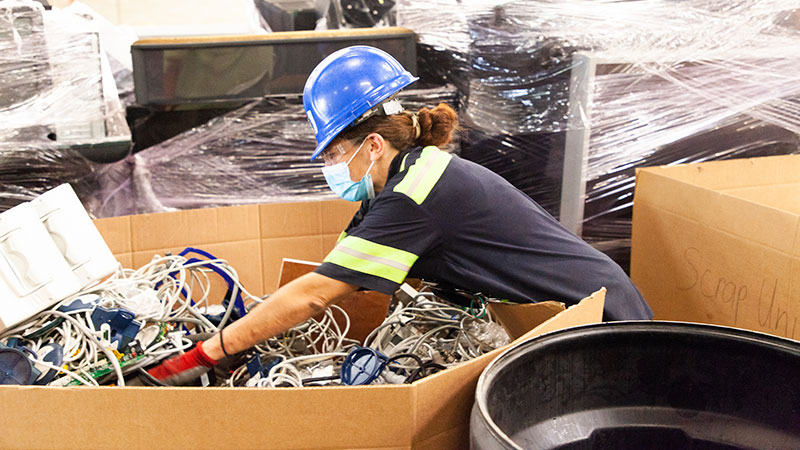Fred Strader used to be a panhandler, manning his Downtown spot each day at the corner of Meridian and Maryland streets.
He held up signs telling passersby he was the mayor of that street corner. He joked with them and flashed a big smile. Most days, with his jovial personality, Strader could pull in $50 to $75.

Strader was recently on the streets again, but not panhandling. Those days are in his past. Strader was doing litter cleanup in an Indianapolis neighborhood for RecycleForce, part of its Pathways to Employment Program.
“I’ve got me a good job now,” Strader said as he steadily picked up trash.
Strader is one of more than 1,600 people RecycleForce has helped as it carries out its mission to employ men and women who are under the supervision of the Indiana criminal justice system.
“He’s a great guy,” RecycleForce President Gregg Keesling said of Strader. “He’s now a working man in the community—and changing his life.”

Launched 15 years ago, RecycleForce delivers comprehensive and innovative recycling services to support workforce training, development and job placement for formerly incarcerated men and women as they make the transition back to society.
It recently received a financial boost by a grant from Lumina Foundation.
“We were so happy to get that help from Lumina,” Keesling said. “We’re basically training the people coming home from prison for the economy of this state.”
As RecycleForce employees get training and then go out to work, they are helping the community in more ways than one, he said.
Since 2006, RecycleForce has recycled more than 65 million pounds of electronic waste – which can’t just be deposited in a landfill. Indiana law requires the safe disposal of e-waste because the products contain hazardous elements that can damage the environment and endanger public health.
Beyond that, RecycleForce keeps workers from returning to prison. Ex-offenders have the odds stacked against them; when released, many have no job and no home to return to.
RecycleForce has helped change that. In Marion County, between January 2007 and June 2014, RecycleForce employees had a return-to-prison rate of 26.3 percent. That compares to a three-year recidivism rate of about 50 percent among the county’s general population of ex-offenders.
The difference, Keesling said, is that RecycleForce participants can secure transitional employment and other services needed for successful re-entry.

RecycleForce not only helps ex-offenders break down the barriers to employment by providing jobs for up to six months, it also offers programs designed to get its employees’ lives back on track. Among those are character development, personal counseling, and training in the skills needed for a successful job search. This wraparound approach greatly increases the chance of sustained employment and decreases the chance of reoffending, Keesling said.
Once trained, many of RecycleForce’s employees stay with the organization. More than half of permanent staff positions at RecycleForce are filled by ex-offenders who were once program participants.
Learn more about RecycleForce.
